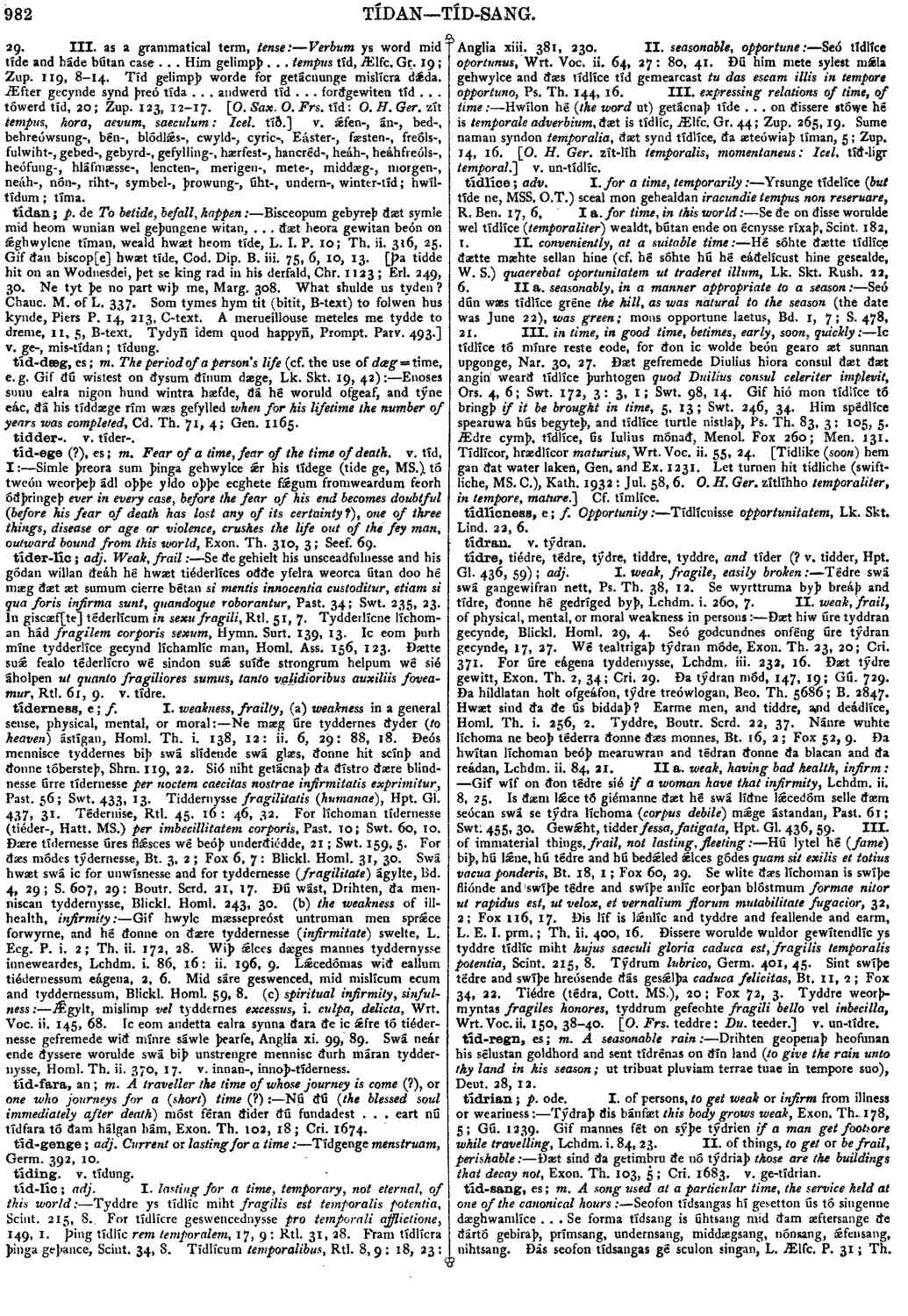tídan
- verb [ weak ]
-
Bisceopum gebyreþ ðæt symle mid heom wunian wel geþungene witan, . . . ðæt heora gewitan beón on ǽghwylcne tíman, weald hwæt heom tíde,
- L. I. P. 10; Th. ii. 316, 25.
-
Gif ðan biscop[e] hwaet tíde,
- Cod. Dip. B. iii. 75, 6, 10, 13.
Bosworth, Joseph. “tídan.” In An Anglo-Saxon Dictionary Online, edited by Thomas Northcote Toller, Christ Sean, and Ondřej Tichy. Prague: Faculty of Arts, Charles University, 2014. https://bosworthtoller.com/30412.
Checked: 0